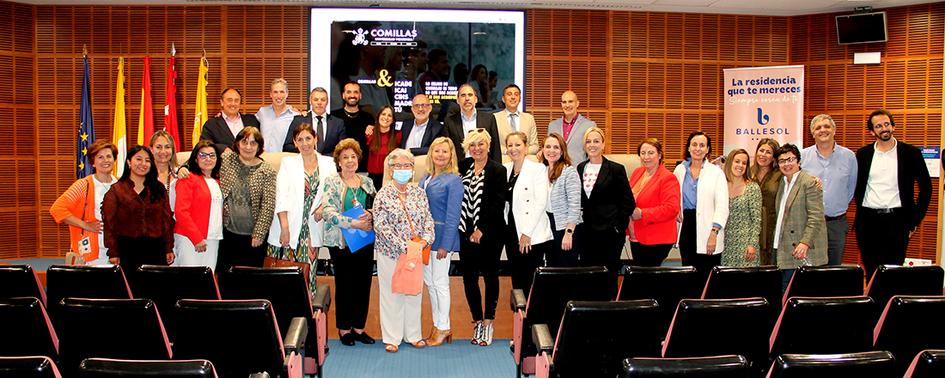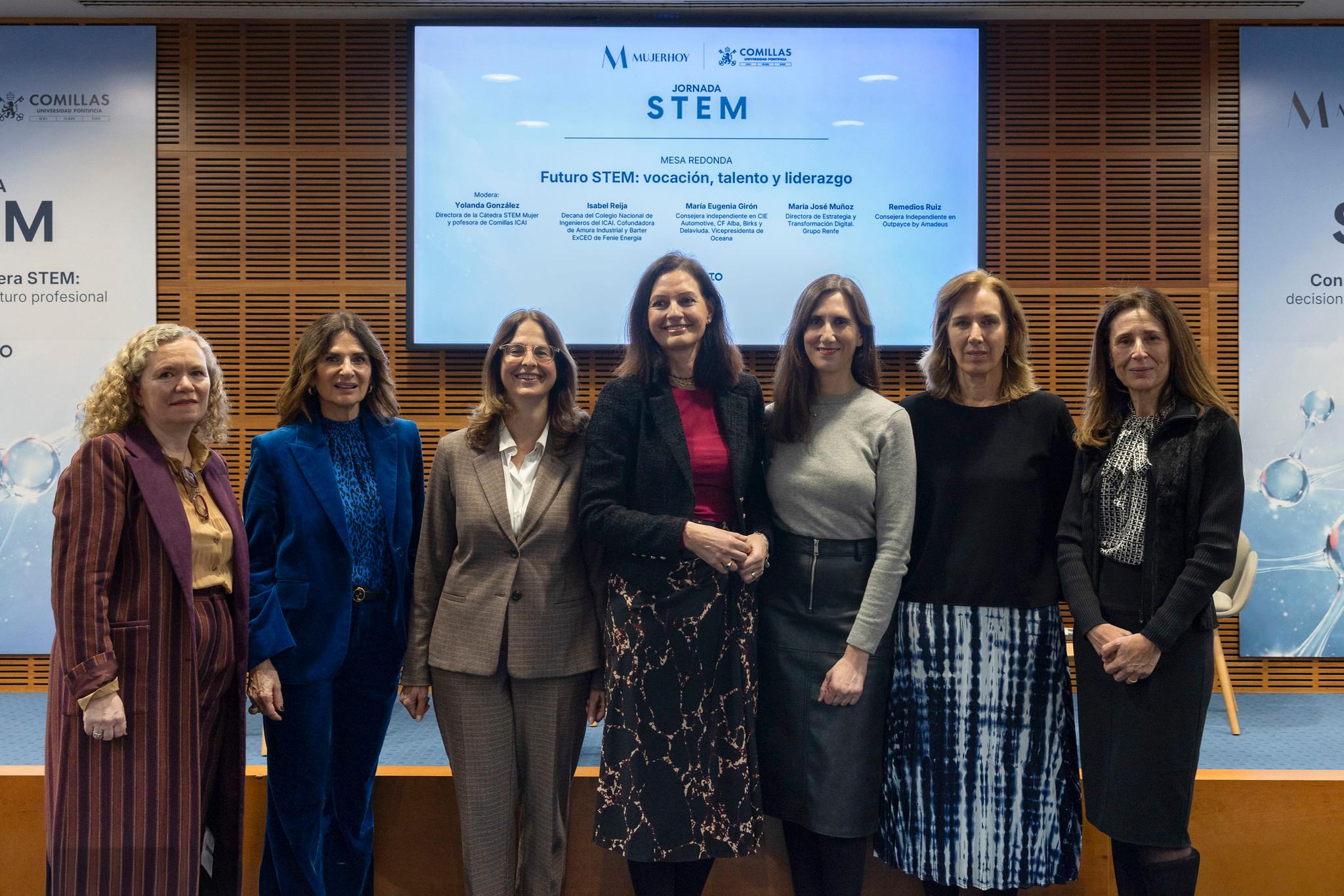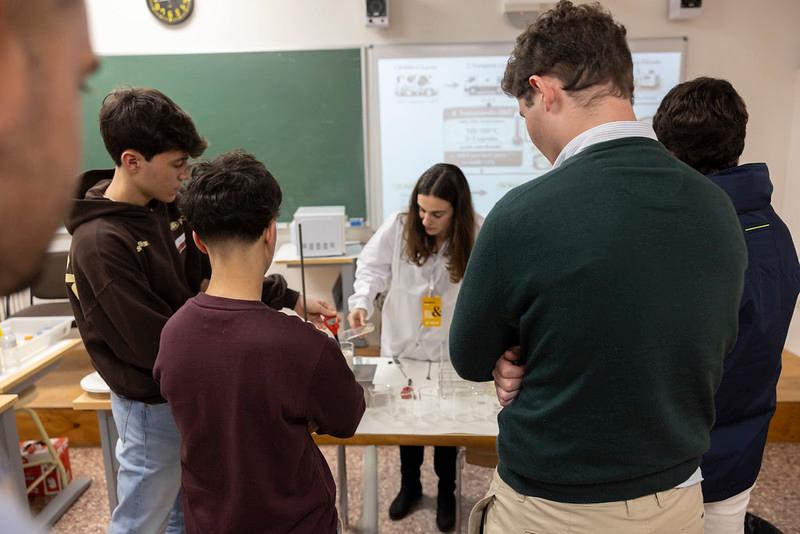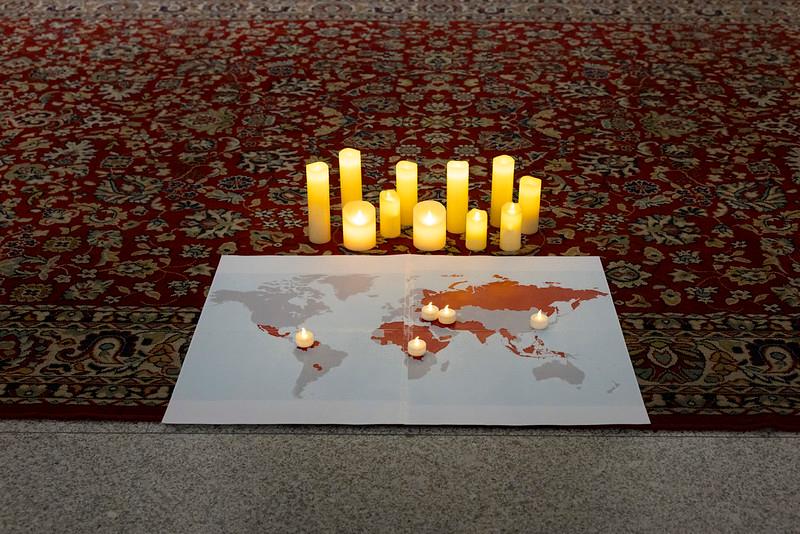An analytical view on loneliness
Comillas and Ballesol organised the IV Bioethics Conference dedicated to unwanted loneliness

The speakers celebrated the success of the IV edition of the Bioethics Conferences that Comillas organised with Ballesol
28 April 2023
32.2% of the elderly in Europe live in loneliness, more than 24% in Spain. 92% of Spaniards consider unwanted loneliness to be a significant social problem. This is what was discussed at the IV Bioethics Conference, which “is already a reference in the field of study and divulgation of the bioethical dimensions involved in elderly care”, as Rafael Amo, director of the Chair in Bioethics at Comillas, who organised the meeting together with Ballesol, stated.
Under the title of “Bioethics and unwanted loneliness” the conference addressed topics like risk factors, existing loneliness and interventions in loneliness from different areas, an provided alarming data. “33% of family caregivers feel lonely more than three days a week and, when their job is done, they still feel lonely up to four years later,” according to Andrés Losada, vicepresident of the Spanish Society of Geriatrics and Gerontology, who shared the results of a recent study carried out by this institution, involving 262 caregivers.
Among the experts who offered their vision of loneliness at an advanced age was Gonzalo Aza, lecturer of Psychology at the Faculty of Humanities and Social Sciences (Comillas CIHS), who analysed it from a socio-anthropological point of view, considering both structural and cultural aspects in order to understand the interaction between life history, individual experience and socio-cultural conditions. The trend as a society, he said, “is to become more and more individualistic and independent. As a society we have to find ways to deal with the unstable balance between disconnection and autonomy, which are two antagonistic forces”.
The participants, experts from different universities and social organisations, agreed on their speeches that “you have to be an active person all your life to have a social network”, and highlighted the ability of multidisciplinary teams (doctors, psychologists, therapists...) to promote and maintain personal roles, participation and integration of residents “in a satisfactory life of active and successful ageing that avoids social isolation”.
Related news

A meeting to listen, share doubts and discover that talent is also built with courage

The program includes three complementary professional profiles: agricultural engineer, manager and industrial engineer

The university community came together in prayer as a gesture of commitment to peace and justice
